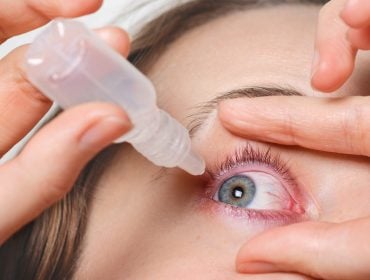Unveiling the Triggers: Understanding Worsening Herpes Outbreaks
Herpes outbreaks can turn worse due to a few key triggers. Stress, being sick, or even sun exposure may make them hit hard and often. Sometimes you might see these sores show up many times in a row.
Even after years without any sign of it, an outbreak can still happen out of the blue. An odd fact: even if someone shows no sore signs at all, they can still pass on herpes through their skin’s wet parts during close moments. This means staying aware and careful is always smart.
Understanding Herpes Outbreak Triggers
Knowing what triggers your herpes outbreaks is key. Many don’t realize they have it, as signs are often missed. Herpes spreads even without visible sores, through viral shedding in genital fluids.
This fact surprises most people who test positive for the first time; many never spotted any ulcers on their partners or themselves before testing. If you spot ulcers, see a doctor right away – confirming if it’s herpes matters a lot. Early treatment with antiviral meds can shorten discomfort days and has minimal side effects.
For those diagnosed, sharing this info with future partners is crucial along with possible daily antiviral therapy to lower infection risks, though no method guarantees full safety. Over years, unnoticed infections may suddenly trigger more episodes due to various reasons like stress or immune changes, making understanding and managing triggers all the more important.
Factors That Worsen Outbreaks
When you think about herpes outbreaks, certain factors can make them harsher. For instance, age and gender play a big role. Before hitting 50, women and those assigned female at birth (AFAB) face more skin issues like cancer which might tie into their experience with severe herpes flare-ups compared to men or people assigned male at birth (AMAB).
However, after the age of 50, this trend flips – it becomes more common in men and AMAB individuals. This shift suggests that as we grow older, our bodies react differently to diseases based on our sex from birth. It’s crucial to stay informed about how your risk may change over time.
Multiple Consecutive Herpes Episodes
When you have back-to-back herpes outbreaks, it feels like a never-ending cycle. This happens when your body doesn’t get enough time to fully fight off the first episode before another hits. It’s more than just discomfort; these repeated episodes can affect your overall wellbeing.
Each outbreak might seem similar on the surface but having them in quick succession could suggest an underlying issue with your immune system not being strong enough to keep the virus in check between attacks. To manage this, focus on keeping yourself healthy and reducing things that stress out your body or mind. Sleep well, eat foods rich in vitamins, and try activities that calm you down like walking or yoga.
Remember, while medicine helps control symptoms and spread of herpes long-term health habits play a big role too. If frequent outbreaks are disrupting life despite trying these steps talk with healthcare professionals they may need to adjust treatment strategies for better management.
Outbreak Recurrence After Years
When herpes comes back after years, it’s a surprise for many. This virus hides in your body even if you feel fine. It waits quietly until the right moment to show up again.
Things like other sicknesses or feeling really stressed can wake it up. When this happens, you might see sores at the same spot as before or somewhere close. Each person has their own pattern of how often and bad these outbreaks get.
Remember, there’s no cure yet but treatments help keep symptoms under control better now than ever before with antiviral medicines reducing outbreak length and pain level significantly when taken early on during an episode.
Stress and Immune System Impact
When you’re stressed, your body’s defense gets weaker. This means it fights off intruders like viruses less well than when you’re calm. Imagine your immune system as a castle guard under stress, not as sharp or strong.
Studies show that during stressful times, people with herpes may see more outbreaks. This isn’t just guesswork; it has to do with how stress hormones affect our cells and their ability to keep the virus in check. Keeping cool can help manage flare-ups better since this steadies your body’s defenses against unwelcome guests like the herpes virus.
Dietary Influences on Herpes Severity
Eating certain foods can make herpes worse. Foods high in arginine, like nuts and chocolate, may trigger more severe outbreaks. On the flip side, lysine-rich foods such as fish and yogurt might help keep symptoms at bay.
A balanced diet boosts your immune system too. This means less severe episodes when they happen. Keep sugar intake low; it weakens the body’s defense against viruses including herpes.
It’s smart to stay hydrated as well, water helps your system flush out toxins faster. Lastly, while studies are ongoing, some find that cutting down on caffeine and alcohol could also lessen outbreak severity.
Preventing Severe and Frequent Flare-Ups
To prevent severe and frequent flare-ups, focus on your body’s health first. Keep skin clean but avoid harsh scrubbing which can irritate sores more. Moisture helps; use mild lotions to keep affected areas soft.
A well-rested body fights off outbreaks better, aim for 7-9 hours of sleep a night. Exercise boosts overall immunity; try 30 minutes daily activities like walking or yoga that don’t stress the skin too much. Eat foods rich in lysine such as fish or chicken while avoiding arginine-heavy nuts and seeds since this balance might help reduce episodes.
Lastly, manage stress through mindfulness techniques like meditation or deep breathing exercises because mental calm plays a big role in controlling herpes symptoms.
You now see what makes herpes outbreaks get worse. Stress, sickness, sunburn, and not eating right can all play a part. Keeping stress low and your body healthy may help keep these flare-ups at bay.
If you spot signs or worry about your health status, getting checked is wise. Visit STDCheck for easy testing options so you stay informed about your health journey. Knowledge lets you manage symptoms better and live with peace of mind.
Medically Reviewed by J. Frank Martin JR., MD on April 8, 2024
Secure and Confidential
STD testing services
The fastest results possbile - available in 1 to 2 days

Tagged
Categorized As
Author: STD Check Editorial Team
At STDCheck.com, we go to great lengths to ensure quality content. We’re using our own collection of data. It is not bought or made up for “click-bait” purposes. We don’t entice traffic with cheesy graphics or raunchy headlines. Our information is to promote STD testing, educate people, let go of social stigmas, and bring awareness. We also provide a completely confidential atmosphere through private testing. When we produce an article, it is fact-based. We check it with medical advisors that approve it. Our staff consists of doctors and other medical professionals who peer review the content we make available on STDCheck.com. From all over the world, we have sourced the best and the brightest content developers, including medical professionals, marketing engineers, data scientists, content specialists, and media relations.




